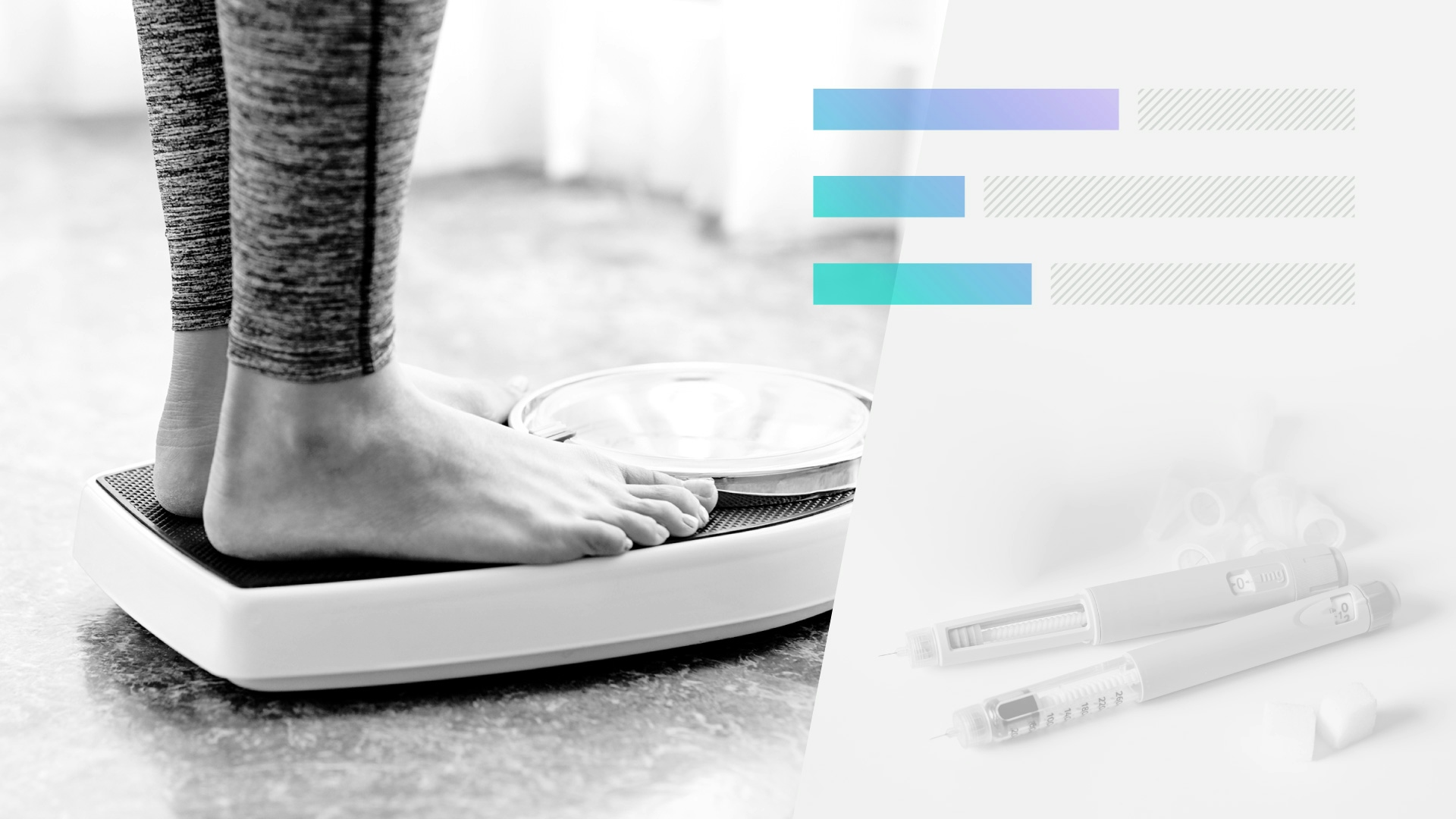How Ozempic Users Are Changing Their Eating and Drinking Behaviors

Key Takeaways
80% of U.S. adults taking prescription drugs like Ozempic, Mounjaro or Wegovy for weight loss say their eating habits have changed “a lot” or “some” since starting the drugs.
Many users say they are cutting back on caloric drinks and incorporating more fruits and vegetables into their diets, but it’s not just what they’re eating that’s changing — it’s how. Users of drugs like Ozempic say they are using portion control (45%) and cooking at home (44%) more frequently since beginning the medications.
Brands that understand consumer behavior and develop products to meet the evolving needs of their customers will be best positioned to withstand disruption from weight loss drugs.
Sign up to get the latest global brand, media and marketing news and analysis delivered to your inbox every morning.
Ozempic and drugs like it have captured massive media attention for their ability to help users lose weight. But it’s not just the media keeping a close eye on interest in and use of GLP-1 drugs for weight loss. Food and beverage brands are also paying close attention, as greater use of the drugs will likely mean big changes to what, where and how much their customers eat and drink.
Weight loss drug users choose more fruits, vegetables and protein
GLP-1 drugs like Ozempic have the ability to impact a users’ weight because of two key mechanisms: 1) they reduce hunger, appetite and cravings, and 2) they slow the rate the stomach empties, leading users to feel fuller longer.
That means most users are making notable adjustments to their diets. New Morning Consults research shows that 4 in 5 U.S. adults taking prescription drugs like Ozempic, Mounjaro or Wegovy for weight loss say their eating habits have changed “a lot” or “some” since starting the drugs. The biggest dietary shifts include cutting back sugary drinks and alcohol and eating more fruits and vegetables
How Users of Ozempic, Drugs Like it Are Changing Their Eating Habits
These choices make sense because they align with how consumers define “healthy eating.” Roughly 9 in 10 consumers who say they are eating healthier say it’s necessary to eat more fruits and vegetables, with 67% saying it's “very necessary.” Just over 4 in 5 say the same about limiting sugary drinks. Plus, they also stack up to recommendations from physicians prescribing the medications who advise focusing on highly nutritious foods if the amount of food you’re eating has lessened.
Cooking at home, portion control are priorities for weight loss drug users
To further help support weight loss goals, many users of Ozempic and drugs like it are changing up where they are eating. Since starting the medications, many users are choosing to cook meals at home more frequently: Almost half (45%) of weight loss drug users said they have cooked more meals at home since beginning the medication compared with just 12% who said they are cooking at home less often.
Restaurants and Takeout are on the Chopping Block for Many GLP-1 Users
Weight loss drug users are cutting back on both dine-in and to-go experiences. Over 3 in 10 weight loss drug users said they eat at a restaurant (31%) and order takeout (37%) less frequently than before they took the medications, the largest shares of any activity we asked about. If use of the drugs continues to grow, this behavior shift has significant ramifications for the restaurant industry.
These new habits could be driven by a number of factors. Users may feel more in control over what they eat or drink at home compared with a restaurant. Or, it could be that they do not want to pay for a pricey meal when they know they’ll be unable to finish it. Still it’s important to note that pluralities of weight loss drug users said they are doing these activities the same amount as they did previously. This could mean the convenience offered by restaurants is winning out over other considerations, or weight loss drug users are finding the healthy options they want at their previous favorite or new restaurants.
The food and beverage industry has overcome many diet fads in the past by paying close attention to consumer behavior and developing companion products, or entirely new products, to meet the evolving needs of their customers. Brands that implement this strategy should be able to do the same in the Ozempic era.
Nicki Zink is deputy head of Industry Analysis. Her team identifies trends affecting key demographics across food & beverage, travel & hospitality and financial services. Prior to joining Morning Consult, Nicki served as the head of digital intelligence at Purple Strategies, a corporate reputation and strategy firm. She graduated from Miami University with a bachelor’s degree in mass communication. For speaking opportunities and booking requests, please email [email protected].